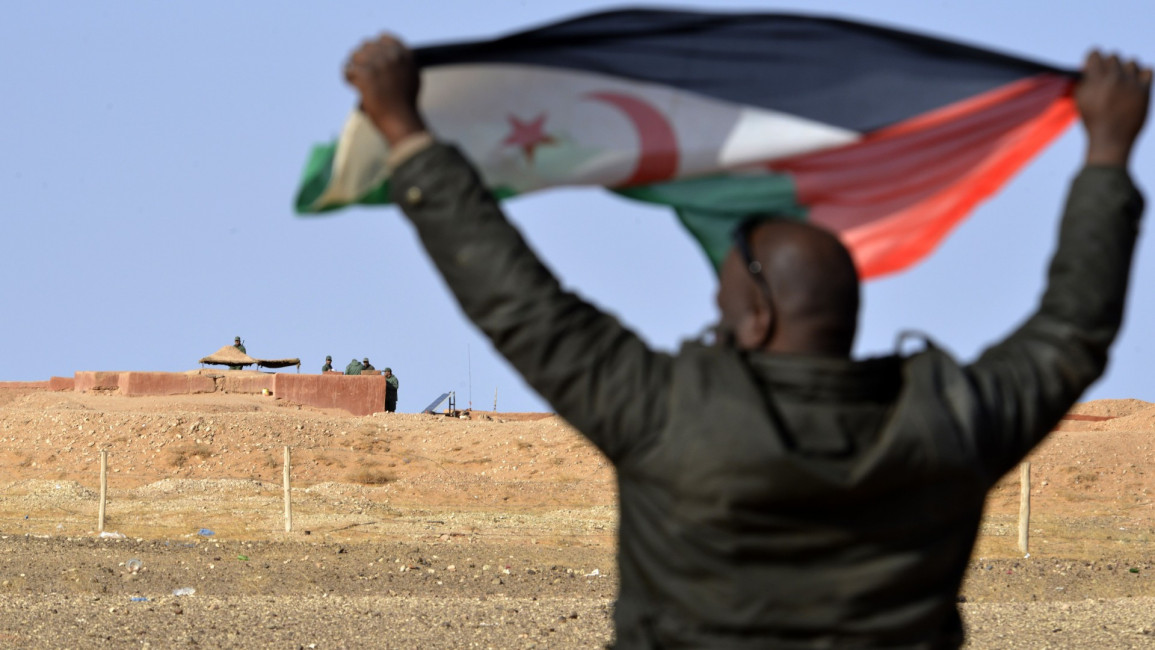UN expert urges Morocco to stop targeting activists over W.Sahara
Morocco must stop targeting activists and journalists who stand up for human rights in the disputed region of Western Sahara, a UN-appointed independent expert said Thursday.
Morocco laid claim to the former Spanish colony with rich phosphate resources and offshore fisheries after Spain withdrew in 1975, but the separatist Polisario Front denies this claim.
"I urge the government of Morocco to cease targeting human rights defenders and journalists for their work, and to create an environment in which they can carry out such work without fear of retaliation," Mary Lawlor said in a statement.
The United Nations special rapporteur on the situation of human rights defenders, who does not speak in the UN's name, highlighted the cases of Naama Asfari and Khatri Dadda.
They have been detained since 2010 and 2019 respectively, and are serving sentences of 30 and 20 years.
"Not only do human rights defenders working on issues related to human rights in Morocco and Western Sahara continue to be wrongfully criminalised for their legitimate activities, they receive disproportionately long prison sentences and whilst imprisoned, they are subjected to cruel, inhuman and degrading treatment and torture," Lawlor said.
She said she had received reports that activists working on issues related to human rights in Western Sahara had been subjected to "intimidation, harassment, death threats, criminalisation, physical and sexual assault, threats of rape and surveillance."
If these reports are confirmed, she added "they amount to violations of international human rights law and standards, and fly in the face of the Moroccan government's commitment to the UN system as a whole."
Moroccan authorities were not immediately available for comment.
Lawlor also highlighted the case of human rights defender Sultana Khaya and her family, "who have been prevented since November 2020 from leaving their home in El Aaiun (in Western Sahara)."
"Sultana and (her sister) Luara Khaya are both members of the Saharawi Organ against the Moroccan Occupation (ISACOM), an organisation founded in September 2020 to advocate the right of non-violent self-determination for people in Western Sahara and to work for the release of Saharawi political prisoners."
Morocco controls 80 percent of Western Sahara, and the rest is run by the Polisario Front.
It has offered the vast territory autonomy but maintains it is part of the Moroccan kingdom.
After 16 years of war, Rabat and the Polisario signed a ceasefire in 1991, but a UN-backed referendum on self-determination has been constantly postponed.
The UN calls Western Sahara a "non-self-governing territory" whose people "have not yet attained a full measure of self-government".


![President Pezeshkian has denounced Israel's attacks on Lebanon [Getty]](/sites/default/files/styles/image_684x385/public/2173482924.jpeg?h=a5f2f23a&itok=q3evVtko)



 Follow the Middle East's top stories in English at The New Arab on Google News
Follow the Middle East's top stories in English at The New Arab on Google News


